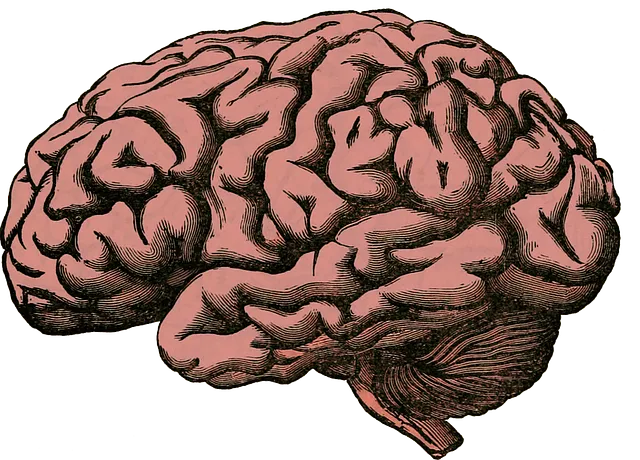Centennial Kaiser Permanente is a leader in comprehensive mental health care, utilizing the RFM (Resilience, Flexibility, Mastery) framework as a core strategy. This approach empowers individuals with coping mechanisms and adaptability, fostering growth despite adversity. Through personalized exercises integrated into therapeutic practices, risk assessments, and accessible initiatives like the Mental Wellness Podcast Series, they ensure tailored care aligned with unique patient needs. Their goal is to break down stigma, promote early intervention, and enhance overall mental wellness in a stressful world.
“Discovering resilience through the RFM framework, a powerful tool for enhancing mental well-being, particularly in the context of healthcare. This article explores how Centennial Kaiser Permanente has pioneered mental health support by integrating RFM (Recovery, Flexibility, and Mastery) into their practices. We delve into practical resilience-building exercises applicable to daily life and examine successful implementation at the hospital. Learn how these strategies can improve mental health outcomes, offering a promising approach for comprehensive patient care at Centennial Kaiser Permanente and beyond.”
- Understanding RFM: A Framework for Mental Resilience
- The Role of Centennial Kaiser Permanente in Mental Health Support
- Resilience Building Exercises: Practical Strategies for Daily Life
- Integrating RFM into Healthcare Practices at Century Kaiser Permanente
- Measuring Success: Evaluating the Impact of RFM Programs
Understanding RFM: A Framework for Mental Resilience

At Centennial Kaiser Permanente, mental health professionals recognize that building resilience is a key component to fostering emotional well-being. The RFM framework—an acronym for Resilience, Flexibility, and Mastery—serves as a powerful tool in this endeavor. This approach focuses on helping individuals develop coping strategies that enable them to navigate life’s challenges more effectively. By emphasizing resilience, the RFM model encourages folks to adapt and grow despite adversity.
Through various exercises tailored to individual needs, resilience building becomes an integral part of one’s mental health toolkit. These techniques, often incorporated into therapeutic practices, aim to enhance emotional well-being promotion. Moreover, a comprehensive risk assessment is conducted to identify potential triggers and support systems, ensuring that every patient receives personalized care. This holistic strategy aligns with Centennial Kaiser Permanente’s commitment to providing exceptional services in the realm of mental health management.
The Role of Centennial Kaiser Permanente in Mental Health Support

Centennial Kaiser Permanente stands as a beacon of hope and support for mental health awareness, offering comprehensive services that extend far beyond traditional medical care. Their dedication to fostering resilience among their community members is commendable, aligning perfectly with the Mind Over Matter principles that emphasize the power of mental fortitude. Through innovative programs designed to educate and empower individuals, Kaiser Permanente addresses not just symptoms but also the underlying causes of various mental health conditions, including depression prevention.
The organization’s approach to mental health education involves tailored programs that cater to diverse populations. By integrating these initiatives into their healthcare infrastructure, they ensure accessibility and convenience for those seeking support. This proactive strategy not only promotes early intervention but also cultivates a culture where open conversations about mental well-being are encouraged, breaking down the stigma associated with seeking help.
Resilience Building Exercises: Practical Strategies for Daily Life

Resilience building exercises are essential tools for navigating life’s challenges and fostering mental wellness. Organizations like Centennial Kaiser Permanente recognize this, integrating such practices into their mental health services to empower individuals with coping strategies for daily stressors. These exercises go beyond simple stress management; they cultivate a mindset that enables folks to adapt and bounce back from setbacks.
The Mental Wellness Podcast Series Production often highlights practical resilience-building techniques, many of which can be incorporated into routine activities. Social Skills Training and Mental Health Education Programs Design can benefit greatly from these strategies, teaching individuals how to recognize triggers, reframe negative thoughts, and develop healthy coping mechanisms. By integrating such exercises into daily life, people can enhance their overall mental wellness and create a more resilient mindset.
Integrating RFM into Healthcare Practices at Century Kaiser Permanente

At Centennial Kaiser Permanente, integrating Resilience, Flexibility, and Mastery (RFM) principles into healthcare practices has become a cornerstone of their comprehensive mental health services. This approach recognizes that fostering resilience is an essential aspect of overall well-being, particularly in navigating today’s stressful world. By incorporating RFM into their programs, the organization aims to empower individuals with effective coping strategies, enhancing their ability to manage stress and promote mental wellness.
The implementation of RFM at Century Kaiser Permanente involves various initiatives, including compassion cultivation practices designed to build emotional resilience. These practices encourage self-care, mindfulness, and empathy, which are crucial for maintaining mental health. Additionally, the Mental Wellness Podcast Series Production serves as a platform to educate and inspire patients and community members on topics related to stress management and personal growth. Through these integrated efforts, Centennial Kaiser Permanente is revolutionizing healthcare delivery, ensuring that mental wellness is not just treated but nurtured and supported in every aspect of their services.
Measuring Success: Evaluating the Impact of RFM Programs

Evaluating the impact of Resilient Family Management (RFM) programs is a crucial step in understanding their effectiveness and long-term benefits, especially within institutions like Centennial Kaiser Permanente focused on mental health initiatives. The success of these programs can be measured through various qualitative and quantitative methods. One key indicator is participant feedback, where individuals share their experiences and the extent to which RFM techniques have helped them manage stress, anxiety, or other mental health challenges.
Additionally, tracking improvements in specific areas like Emotional Healing Processes, Empathy Building Strategies, and Self-Esteem Improvement can provide valuable insights. Research has shown that RFM exercises often lead to enhanced emotional intelligence, better conflict resolution skills, and increased resilience, all of which contribute to improved mental well-being. By regularly assessing these factors, Centennial Kaiser Permanente can ensure their programs are not just temporarily beneficial but foster lasting positive changes in participants’ lives.
Resilience, a key component of overall well-being, is now being actively integrated into healthcare practices, particularly at institutions like Centennial Kaiser Permanente, which focuses on holistic mental health support. By understanding the RFM framework and implementing practical resilience-building exercises, individuals can enhance their ability to navigate life’s challenges. The success of these programs, as measured by participant evaluations, underscores the significant impact they have on fostering mental resilience. Centennial Kaiser Permanente’s commitment to incorporating RFM into its healthcare offerings highlights a promising approach to improving mental health outcomes in a comprehensive and accessible manner.



